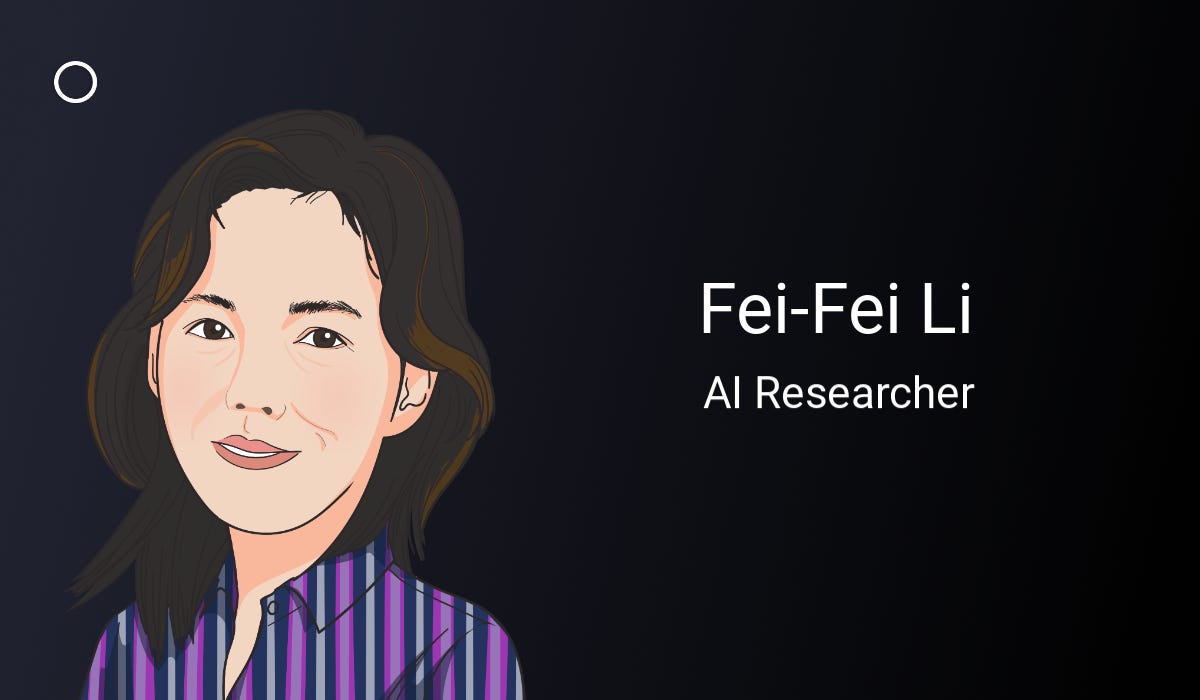👋 Hey Friends,
At WaitWho.Is, we help you find the most innovative thinkers, leaders, and entrepreneurs from across the globe to inspire you to think deeply and explore curiously.
Each week, we introduce you to one of our favorite thinkers and highlight some of their best content. We’ll also let you know about the new folks that we’ve indexed so you can see all of their best content in one place.
Who is Dr. Fei-Fei Li?

A couple months back, OpenAI released their now infamous GPT-3 which blew up the corner of the internet we spend most of our time on. Demos of this technology building websites, writing articles, and having conversations quickly flooded Twitter and permeated the Silicon Valley zeitgeist.
This new development in AI was extremely exciting to us (especially to Faraaz who set up GPT-3 to write queries on our database), but also left us feeling a bit unsettled about its implications. This led us down the path of ethics in AI research which is where we discovered the incredible work of Dr. Fei-Fei Li.
See, Dr. Li is widely considered to be one of the leading experts in AI (especially computer vision). She’s a professor at Stanford where she runs the Stanford Artificial Intelligence Lab and is the former Chief Scientist for AI research at Google Cloud.
Over the last two decades, she’s published over 180 research papers, founded ImageNet (which was one of the first datasets available to train AI models and is said to have spawned the latest AI boom), and launched the nonprofit AI4ALL to promote a human-centered approach to AI.
While all of her work is fascinating, it’s this human-centered approach we were drawn to most. She explains it in her NYT op-ed:
I worry, however, that enthusiasm for A.I. is preventing us from reckoning with its looming effects on society. Despite its name, there is nothing “artificial” about this technology — it is made by humans, intended to behave like humans and affects humans. So if we want it to play a positive role in tomorrow’s world, it must be guided by human concerns. I call this approach “human-centered A.I.”
This piece (which you can check out here) is a great place to get introduced to a new way of thinking about AI research and the importance approaching it thoughtfully. Then, if you want to hear more, we recommend her conversation with Kevin Scott on Microsoft’s Behind the Tech podcast.
Outside of the ethics, we loved the progress report she gave on the state of computer vision in her TED talk. Although it’s from 2015, it’s still fascinating to have Dr. Li walk us through the challenges, opportunities, and possibilities that are unlocked when our computers can truly see.
If you want to learn more, you can follow Dr. Fei-Fei Li on Twitter @DrFeiFei and find all of her content (research papers included) at WaitWho.is/FeiFei-Li.
Who else?
This week we also want to introduce you to the amazing:
Stewart Butterfield — CEO of Slack
Arlan Hamilton — Founder of Backstage Capital
John Collison — Co-founder & President of Stripe
Nick Szabo — Computer Scientist & Bit Gold creator
Who do you want to see?
Is there a certain person you would love to see featured?
We’d love to hear from you and get suggestions about who to feature next or who to add to the directory. Just hit reply :)
Have a great week!
p.s. If you’re liking these emails and the work we’re doing at WaitWho.Is, we would be extremely grateful if you could share it with a friend 💌



